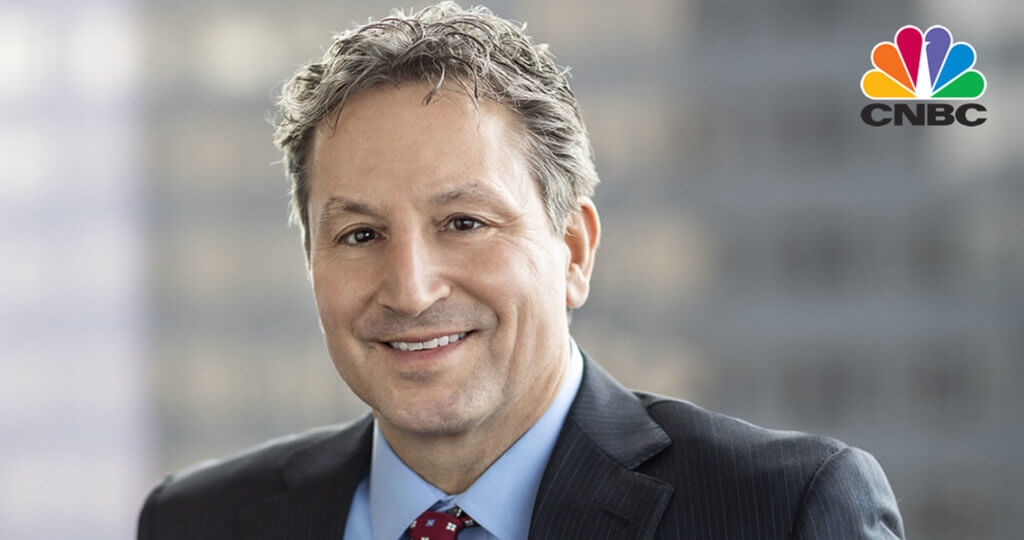Portfolio Manager David Herro shares why one looks outside the U.S., particularly Europe, they’re able to find high-quality, well-managed businesses that trade at almost all-time low valuation differentials on CNBC’s “Squawk on the Street.”
The holdings mentioned comprise the following percentages of total net assets as of 12/31/2023:
| Security | Oakmark International Fund |
|---|---|
| BMW | 2.2% |
| Mercedes-Benz Group | 2.8% |
The holdings mentioned comprise the following percentages of total net assets as of 01/31/2024:
| Security | Oakmark Global Fund | Oakmark Global Select Fund |
|---|---|---|
| BMW | 0% | 0% |
| Mercedes-Benz Group | 3.7% | 4.5% |
Portfolio holdings are not intended as recommendations of individual stocks and are subject to change. The Funds disclaim any obligation to advise shareholders of such changes. Information about portfolio holdings does not represent a recommendation or an endorsement to Fund shareholders or other members of the public to buy or sell any security contained in the Funds’ portfolios. Portfolio holdings are current to the date listed but are subject to change any time. There are no assurances that the securities will remain in the Funds’ portfolios after the date listed or that the securities that were previously sold may not be repurchased.
Access the full list of holdings for the Oakmark International Fund here.
Access the full list of holdings for the Oakmark Global Fund here.
Access the full list of holdings for the Oakmark Global Select Fund here.
The information, data, analyses, and opinions presented herein (including current investment themes, the portfolio managers’ research and investment process, and portfolio characteristics) are for informational purposes only and represent the investments and views of the portfolio managers and Harris Associates L.P. as of the date written and are subject to change and may change based on market and other conditions and without notice. This content is not a recommendation of or an offer to buy or sell a security and is not warranted to be correct, complete or accurate.
Certain comments herein are based on current expectations and are considered “forward-looking statements”. These forward looking statements reflect assumptions and analyses made by the portfolio managers and Harris Associates L.P. based on their experience and perception of historical trends, current conditions, expected future developments, and other factors they believe are relevant. Actual future results are subject to a number of investment and other risks and may prove to be different from expectations. Readers are cautioned not to place undue reliance on the forward-looking statements.
The price to earnings ratio (“P/E”) compares a company’s current share price to its per-share earnings. It may also be known as the “price multiple” or “earnings multiple”, and gives a general indication of how expensive or cheap a stock is. Investors should not base investment decisions on any single attribute or characteristic data point.
Price-to-cash flow is defined as a stock’s capitalization divided by its cash flow for the latest fiscal year.
Free cash flow yield is a ratio that compares the free cash flow per share a company is expected to earn against its market value per share. The ratio is calculated by taking the free cash flow per share divided by the current share price.
Standard Deviation is a measure of the degree to which a portfolio’s return varies from its previous returns, or from the average of all similar portfolios. The larger the standard deviation, the greater the likelihood (and risk) that a security’s performance will fluctuate from the average return.
The Oakmark International Fund’s portfolio tends to be invested in a relatively small number of stocks. As a result, the appreciation or depreciation of any one security held by the Fund will have a greater impact on the Fund’s net asset value than it would if the Fund invested in a larger number of securities. Although that strategy has the potential to generate attractive returns over time, it also increases the Fund’s volatility.
The Oakmark Global Fund’s portfolio tends to be invested in a relatively small number of stocks. As a result, the appreciation or depreciation of any one security held by the Fund will have a greater impact on the Fund’s net asset value than it would if the Fund invested in a larger number of securities. Although that strategy has the potential to generate attractive returns over time, it also increases the Fund’s volatility.
Because the Oakmark Global Select Fund is non-diversified, the performance of each holding will have a greater impact on the Fund’s total return, and may make the Fund’s returns more volatile than a more diversified fund.
Investing in foreign securities presents risks that in some ways may be greater than U.S. investments. Those risks include: currency fluctuation; different regulation, accounting standards, trading practices and levels of available information; generally higher transaction costs; and political risks.
Investing in value stocks presents the risk that value stocks may fall out of favor with investors and underperform growth stocks during given periods.







